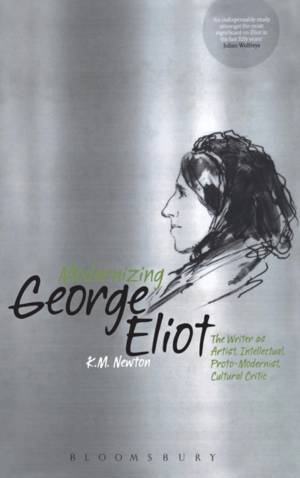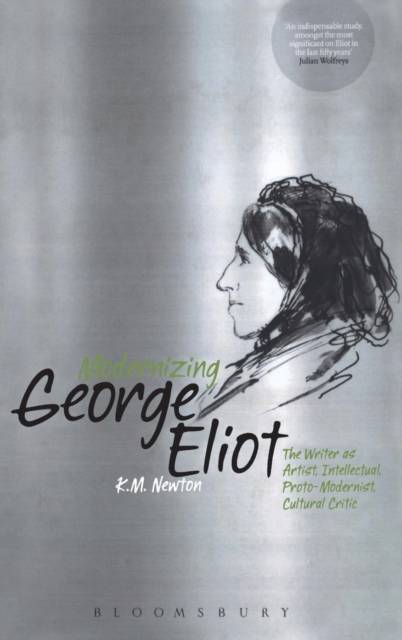
- Afhalen na 1 uur in een winkel met voorraad
- Gratis thuislevering in België vanaf € 30
- Ruim aanbod met 7 miljoen producten
- Afhalen na 1 uur in een winkel met voorraad
- Gratis thuislevering in België vanaf € 30
- Ruim aanbod met 7 miljoen producten
Zoeken
Modernizing George Eliot
The Writer as Artist, Intellectual, Proto-Modernist, Cultural Critic
K M Newton
Hardcover | Engels
€ 220,45
+ 440 punten
Uitvoering
Omschrijving
George Eliot's work has been subject to a wide range of critical questioning, most of which relates her substantially to a Victorian context and intellectual framework. This book examines the ways in which her work anticipates significant aspects of writing in the twentieth and indeed twenty first century in regard to both art and philosophy.
This new book presents a series of linked essays exploring Eliot's credentials as a radical thinker. Opening with her relationship to the Romantic tradition, Newton goes on to discuss her reading of Darwinism, her radical critique of Victorian values and her affiliation with the modernists. The final essays discuss her work in relation to Derridean themes and to Bernard Williams' concept of moral luck. What emerges is a very different Eliot from the conservative figure portrayed in much critical literature.
This new book presents a series of linked essays exploring Eliot's credentials as a radical thinker. Opening with her relationship to the Romantic tradition, Newton goes on to discuss her reading of Darwinism, her radical critique of Victorian values and her affiliation with the modernists. The final essays discuss her work in relation to Derridean themes and to Bernard Williams' concept of moral luck. What emerges is a very different Eliot from the conservative figure portrayed in much critical literature.
Specificaties
Betrokkenen
- Auteur(s):
- Uitgeverij:
Inhoud
- Aantal bladzijden:
- 224
- Taal:
- Engels
Eigenschappen
- Productcode (EAN):
- 9781849664943
- Verschijningsdatum:
- 15/02/2012
- Uitvoering:
- Hardcover
- Formaat:
- Genaaid
- Afmetingen:
- 155 mm x 236 mm
- Gewicht:
- 430 g

Alleen bij Standaard Boekhandel
+ 440 punten op je klantenkaart van Standaard Boekhandel
Beoordelingen
We publiceren alleen reviews die voldoen aan de voorwaarden voor reviews. Bekijk onze voorwaarden voor reviews.








